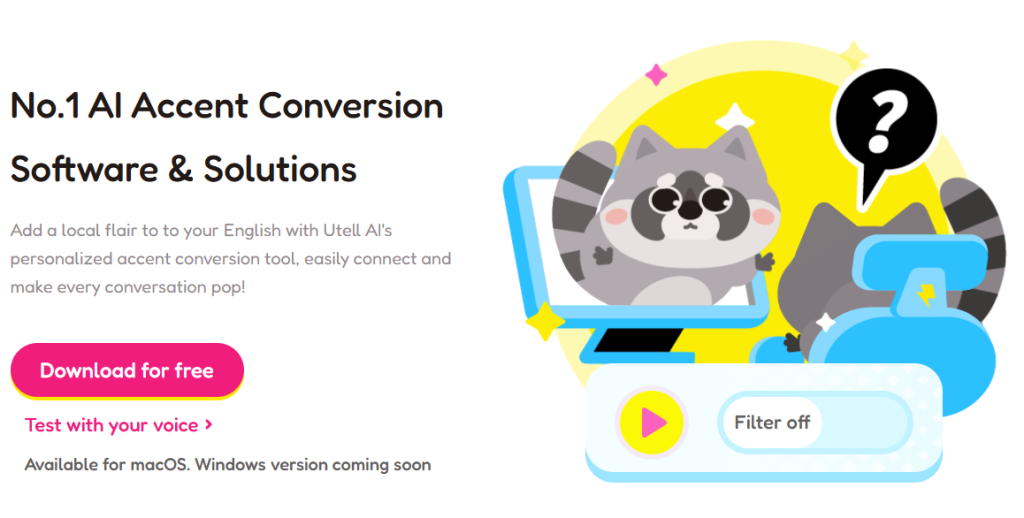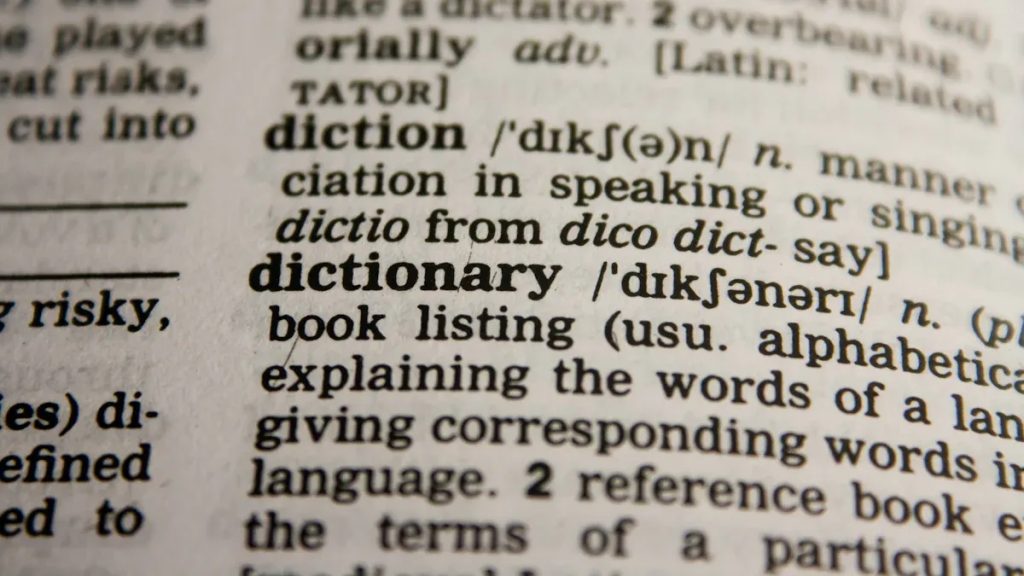Online English pronunciation dictionaries let you hear native speakers fast, making them an essential english pronunciation dictionary tool. This helps you learn the right way to say words. You can listen to hard words and hear how they sound. Use the phonetic symbols in the english pronunciation dictionary to help you say them correctly. Try to guess the word’s pronunciation from the sentence first, then check and fix your pronunciation with the dictionary. Use a monolingual english pronunciation dictionary as your main tool. Many students find these tools work better than old methods. For teaching, you can copy the audio and use apps for practice. This approach helps you learn and improve your pronunciation every day.
Online english pronunciation dictionaries give you:
- Quick audio for correct pronunciation and new words
- Fun features for teaching pronunciation
- Easy use with apps for learning pronunciation
- Getting Started with an English Pronunciation Dictionary
- Listening and Mimicking English Pronunciation
- Practice with Apps and Online Pronunciation Games
- Improve English Pronunciation with Self-Assessment
- FAQs
Getting Started with an English Pronunciation Dictionary
Choosing the Right Dictionary
You need the right english pronunciation dictionary to really learn english. Many people use Forvo because it has audio from native speakers. You can hear how people from different places say words. Other good choices are:
- Collins English Dictionary: Has audio and real examples.
- Cambridge Learner’s Dictionary: Uses easy words and clear audio.
- Oxford Learner’s Dictionaries: Lets you hear British and American english pronunciation.
- Longman Dictionary of Contemporary English: Has links for both British and American versions.
These dictionaries let you hear the correct way to say words. You can also see how words are used in sentences. When you pick an english pronunciation dictionary, look for these things:
- Audio for every word so you can listen and repeat.
- Phonetic charts like the International Phonetic Alphabet (IPA) to show sounds.
- Words broken into syllables and phonemes.
- Recording and playback so you can check your voice.
- Pronunciation tests and games to make learning fun.
- Study lists for hard words.
- Sharing options to get help from teachers or friends.
Tip: Monolingual dictionaries are best for teaching english pronunciation. They give more details about pronunciation rules. You can learn english pronunciation in real situations. Teachers like these more than bilingual dictionaries. You get more practice with the target language and less translation.
A good english pronunciation dictionary will also have quizzes, word lists, and example sentences. These tools help you learn pronunciation rules and use words the right way. You can use them to build your skills and feel more sure when you speak.
Understanding Phonetic Symbols
Phonetic symbols are a big part of every english pronunciation guide. They show you how to say each sound. English spelling is hard, so these symbols help you not make mistakes. The IPA chart is the most common tool for this. It shows all the vowel and consonant sounds in english.
| Symbol | Example Word | Sound Description |
|---|---|---|
| /iː/ | see | Long ‘ee’ sound |
| /ɪ/ | sit | Short ‘i’ sound |
| /θ/ | think | ‘th’ sound |
| /ʃ/ | ship | ‘sh’ sound |
Learning these symbols helps you know the right way to say words. This is true even for words with silent letters or strange spellings. Many people find that using phonetic symbols helps their english pronunciation. It also helps them remember pronunciation rules. You can use the IPA chart in your dictionary to listen to each sound and repeat it.
Note: Many students say learning phonetic symbols makes teaching english pronunciation easier. You can see the difference between sounds and fix mistakes. For example, you can learn to say “see” and “sit” with the right vowel sound.
When you use an english pronunciation dictionary, always check the phonetic transcription. Try to say the word by looking at the symbols before you listen to the audio. This helps you build your skills and guess the pronunciation from context. Over time, you will get better at learning english and feel more sure with hard words.
If you want to get better at english pronunciation, follow these steps:
- Read the help section in your dictionary to learn about its features.
- Practice with the IPA chart and listen to each sound.
- Use the recording tool to compare your voice with the native audio.
- Make study lists of words that follow the same pronunciation rules.
- Play games and take quizzes to test your progress.
Remember, regular practice with an english pronunciation dictionary and a good english pronunciation guide will help you master teaching english pronunciation. You will learn the rules, feel more sure, and speak more clearly every day.
Listening and Mimicking English Pronunciation
Using Audio Examples
You can get better at english pronunciation by using audio in online dictionaries. These tools let you hear how native speakers say words. When you listen, you notice how the words sound. You can hear the rhythm, stress, and intonation. You also hear different english accents. Many dictionaries, like Cambridge and Oxford, have both British and American audio. This helps you compare and pick the accent you want.
Try following these steps to use audio examples:
- Look up a word in your online dictionary.
- Listen to the audio a few times.
- Say the word out loud after each time.
- Notice how the speaker uses stress and intonation.
- Try to copy the accent as closely as you can.
Tip: Use the phonetic transcription in the dictionary. Match the sounds you hear to the symbols. This helps you connect what you see to what you hear.
You can also use these audio examples for english pronunciation practice. Make a list of new words and practice them every day. Doing this will help you feel more sure and improve your pronunciation.
Shadowing Techniques
Shadowing is a strong way to practice english pronunciation. You listen to a native speaker and repeat right after them. This helps you copy the rhythm, stress, and intonation. You also train your ear to hear natural speech patterns.
Studies show that shadowing helps your pronunciation and listening. When you shadow, you build muscle memory for mouth movements. This makes your speech sound more natural and smooth. Experts like Mimura and Kadota say shadowing helps you speak faster and with more confidence. You do not need to think too much or translate in your head.
Here is a guide to start shadowing:
- Pick a short audio clip from your english pronunciation dictionary.
- Listen to the clip once to understand it.
- Play it again and repeat each word after the speaker.
- Focus on matching the accent, rhythm, and intonation.
- Practice every day to see progress.
Shadowing is great for teaching english pronunciation if you do not have native speakers. Add shadowing to your daily routine and you will see big changes in your english pronunciation.
American vs. British Pronunciation
Online dictionaries help you compare American and British english pronunciation. You can listen to both and choose which accent you want. Knowing the differences is important for teaching and learning english pronunciation.
Here are some main differences you will notice:
- American English says the ‘r’ in all words, like “car” and “market.” British English does not say the ‘r’ unless it is before a vowel.
- American English often uses a soft ‘d’ for ‘t’ in words like “butter” and “water.” British English keeps a clear ‘t’ or uses a glottal stop.
- Vowel sounds are different. British English uses a rounded /ɒ/ in “dog” and “pot,” but American English uses /ɑ/.
- Diphthongs sound different too. The British diphthong [ƏU] in “go” starts in the middle of the mouth. The American [oʊ] starts further back.
- Intonation is not the same. British English has more pitch changes. American English is flatter.
Listening to both accents helps you hear these differences. You can pick the accent you want for your english pronunciation practice.
Many online dictionaries give you both American and British audio. Here is a table with some popular dictionaries and their features:
| Dictionary | Features for Comparing Pronunciations |
|---|---|
| Macmillan Dictionary | British and American spelling and pronunciation, phonetic transcriptions, audio, videos, and quizzes. |
| Cambridge Dictionary | Phonetic transcriptions, audio for both accents, definitions, example sentences, and collocations. |
| Longman Dictionary | Transcriptions for both accents, widely used by teachers and students. |
| Oxford Learner’s Dictionary | American and British pronunciation recordings and transcriptions, common definitions, and contextual examples. |
These features help you learn about different english accents. You can use them to get better at listening and speaking. They are good for teaching or learning english pronunciation. Comparing accents helps you sound more natural in different places.
Note: Try to practice with both accents. This will help you understand people from many places. You will also get better at hearing different english accents in real life.
Practice with Apps and Online Pronunciation Conversion Software
Apps with Pronunciation Guides
You can get better at english pronunciation by using special apps. These apps help you practice saying sounds, words, and sentences. They give you feedback right away so you know what to fix. Many of the best apps work with online dictionaries. You can check word meanings and listen to native speakers. Some apps use speech AI to check your pronunciation and give tips. Others let you hear real conversations and try different accents.
Here is a table that shows some popular apps and what they do:
| App Name | Key Features | Platforms |
|---|---|---|
| Pronunroid | IPA transcriptions, phonetic exercises, gamified learning | Android |
| BoldVoice | Speech AI feedback, video lessons from accent coaches, custom accent plans | Not specified |
| Pronounce AI | Real-time feedback, grammar analysis, AI speaking partner, multiple accents | iOS, Android, Web |
| FluentU | Built-in dictionary, clickable words, real-world videos, personalized quizzes | iOS, Android, Web |
These apps let you practice every day and see how you improve. You can set goals and get corrections fast. Many students think using these apps makes learning more fun and easier.
Tip: Try out a few apps to find the one you like best. Some apps help you with sounds, while others use videos or games.
Online Pronunciation Conversion Software
While traditional pronunciation apps and games are excellent for gradual improvement, sometimes you need a more immediate and direct solution to perfect your English pronunciation. This is where Utell AI comes into play as a game-changing tool for accent correction.

What Makes Utell AI Different?
Utell AI is a cutting-edge real-time AI accent conversion tool that offers instant pronunciation assistance. Unlike conventional learning methods that require weeks or months of practice, Utell AI provides immediate results by analyzing your speech patterns and converting them to standard English pronunciation in real-time.
Key Benefits of Using Utell AI
Instant Correction: Get immediate feedback on your pronunciation without waiting for manual assessment or completing lengthy exercises.
Real-Time Processing: The AI technology works as you speak, making it perfect for live conversations, presentations, or phone calls.
Accuracy & Precision: Advanced AI algorithms ensure that pronunciation corrections are not only fast but also highly accurate, targeting specific accent issues.
Direct Approach: Skip the traditional trial-and-error learning process and get straight to the correct pronunciation patterns.
If you’re looking for a quick, accurate, and direct way to correct your English pronunciation, Utell AI offers the most efficient solution available today. The tool seamlessly integrates into your daily communication routine, providing the pronunciation support you need exactly when you need it.
Improve English Pronunciation with Self-Assessment
Recording and Comparing
You can get better at english pronunciation by recording your voice. Then, compare your voice to native speakers in online dictionaries. This way, you can hear small differences in sounds and stress. Many learners think recording right after practice works best. Real-time feedback helps you find mistakes fast and build good habits. Try this routine to check and fix your pronunciation:
- Record your voice right after you practice a word or sentence.
- Listen to the dictionary audio and compare it to your recording.
- Say the word again, trying to match the rhythm and sounds.
- At the end of each day, review your recordings to find patterns.
Experts say you should practice every day and use both quick and later feedback. Real-time feedback lets you fix mistakes right away. Listening to your recordings later helps you think about what to change. If you feel shy, you can wait until your session ends to listen and compare.
Studies show that using both types of feedback helps you learn faster. AI-powered apps now give instant tips and daily reports. This makes it easier to improve your english pronunciation every day.
Tracking Progress
Tracking your progress helps you stay motivated and see how much you have improved. You can use different tools and ways to measure your growth. Here are some ways to track your progress:
| Tool Name | Key Features for Tracking Pronunciation Progress | How It Supports Progress Tracking |
|---|---|---|
| Elsa Speak | AI-powered personalized coaching, interactive modules, real-time feedback | Tracks clarity and fluency metrics over time, offers targeted exercises for improvement |
| SpeechAce | AI speech recognition, instant feedback, tailored practice sessions | Provides immediate pronunciation accuracy feedback and progress tracking |
| Babbel | Focused pronunciation training, interactive lessons, real-time performance evaluation | Offers instant evaluations after exercises to monitor progress |
| Forvo | Native speaker pronunciation database, user contributions | Enables listening to authentic pronunciations and self-correction through practice |
| HelloTalk | Language exchange with native speakers, voice messaging, community feedback | Facilitates real-time feedback and corrections from native speakers |
| Rype | One-on-one coaching, interactive lessons, professional feedback system | Combines AI feedback with expert coaching to track and improve pronunciation |
You can also keep a journal or make video diaries to watch your progress over time. Try taking pronunciation tests every few months to check your skills. Regular self-checks help you see your strong points and what you need to work on. Research shows learners can hear correct sounds well, but sometimes miss their own mistakes. Using self-checks with feedback from teachers or apps gives you the best results.
You can get better at English pronunciation by using online dictionaries often. Listen to the audio, look at the phonetic symbols, and use apps and games to practice. Try to talk with a native English speaker to practice in real life.
Practicing speaking often helps you talk more clearly and with less of an accent.
- You will feel braver and less nervous when you talk.
- Using apps, games, and dictionaries together helps you learn faster and remember things better.
Keep practicing and you will become a more confident English speaker.
FAQs
How often should you practice pronunciation with online dictionaries?
It is best to practice every day. Even if you only have 10 minutes, it helps. Doing this often makes good habits. You will remember new sounds better.
Can you use online dictionaries to learn both American and British accents?
Yes, you can use them for both accents. Many online dictionaries have audio for each accent. You can listen to both and pick the one you want. This lets you compare and practice the accent you like.
What if you cannot understand the phonetic symbols?
Tip: Try learning a few symbols each week. Use the IPA chart in your dictionary to help. Many websites have guides and videos to explain the symbols.
Are pronunciation games and apps really helpful?
- Yes, they make learning more fun and easy.
- Games and apps give you feedback right away.
- You can see your progress and stay excited to learn.




I’ve found that trying to guess the pronunciation before checking the dictionary really sharpens my listening skills. It turns the process into a kind of mini game, which makes practice both fun and more memorable.
Great tips here—especially the idea of guessing a word’s pronunciation before checking it. I’ve found that using phonetic symbols alongside mimicking native speaker audio really helps lock in correct sounds. It’s also motivating to track small improvements with self-assessment over time.